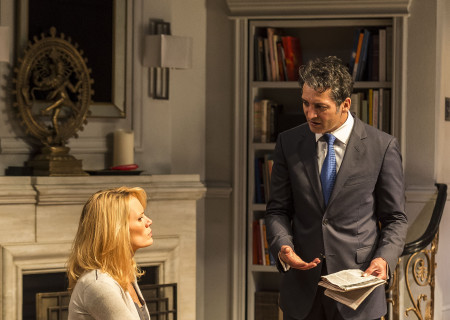

He justifies the idea by explaining his belief that the Jewish-run firm will never allow people of color like himself and Jory to have an equal role in controlling the company.

Amir, Scene 3Īfter worrying that the revelation of his Muslim background is jeopardizing his chances of making partner, Amir tries to convince Jory that they should quit the firm and start their own. And they’re always going to remind us that we were just invited to the party. We are the new Jews.That firm will never be ours. And guys like Steven and Mort became the establishment. And then mergers and acquisitions became all the rage. Emily, however, rejects the idea that she is fetishizing Islam, justifying her embrace of the culture as a sincere effort to reconnect with an influence that has always existed in Western art. The exchange is significant because it builds on the major theme of Orientalism.

Isaac also sees Emily's marriage to a Pakistani-American as further evidence critics could use against her, implying that her orientalism may be seen as influencing not just her art but her sexual preferences. Because she is a white artist, Isaac believes she will be accused of orientalism-representing Asian/Middle Eastern tradition in a stereotyped way that embodies a colonialist attitude. In this exchange, Emily and Isaac discuss Emily's embrace of Islamic traditional art forms in her paintings. ISAAC: You know what you’re going to be accused of… The passage presents an instance of situational irony: even though the man desperately needs Amir's help, he is more concerned with Amir's lapsed faith than his own legal case. Despite having been locked up for four months in a case of allegedly funding terrorism, the imam spent the entire meeting trying to convince Amir to start praying again. Amir, Scene 1Īs Emily tries to convince Amir to support Imam Fareed in his case, Amir expresses frustration over what happened when Amir went to visit the imam in prison. And the man spent an hour trying to get me to pray again. Like conservative politicians, Amir believes Islam is a wholly negative force and that Isaac and Emily are naïve in their embrace of certain cultural products. Amir's views are ironic because they align with the mainstream white American prejudice against Islam that characterized the post-9/11 era. The passage is significant because it reveals how sharply Amir has turned away from his Muslim upbringing. Something to be suffered… Amir, Scene 3ĭuring their heated debate on the merits of Islamic tradition, Amir pushes back against Isaac's and Emily's embrace of traditional Islamic art forms by reminding them of the religious beliefs that he sees as undergirding the religion. Who saw life as something hard and relentless. From a group of tough-minded, tough-living people. To obscure his Muslim background, Abe changes his name, thereby avoiding prejudice and discrimination due to his religious beliefs. The passage is significant because it speaks to how 9/11 led to increased surveillance of Muslim individuals and communities in the United States in the name of counter-terrorism efforts. In this passage, Abe defends himself for having changed his name after Amir teases him for no longer going by Hussein. You know how much easier things are for me since I changed my name? Abe, Scene 1


 0 kommentar(er)
0 kommentar(er)
